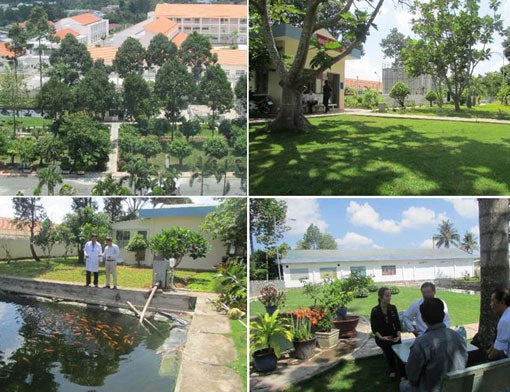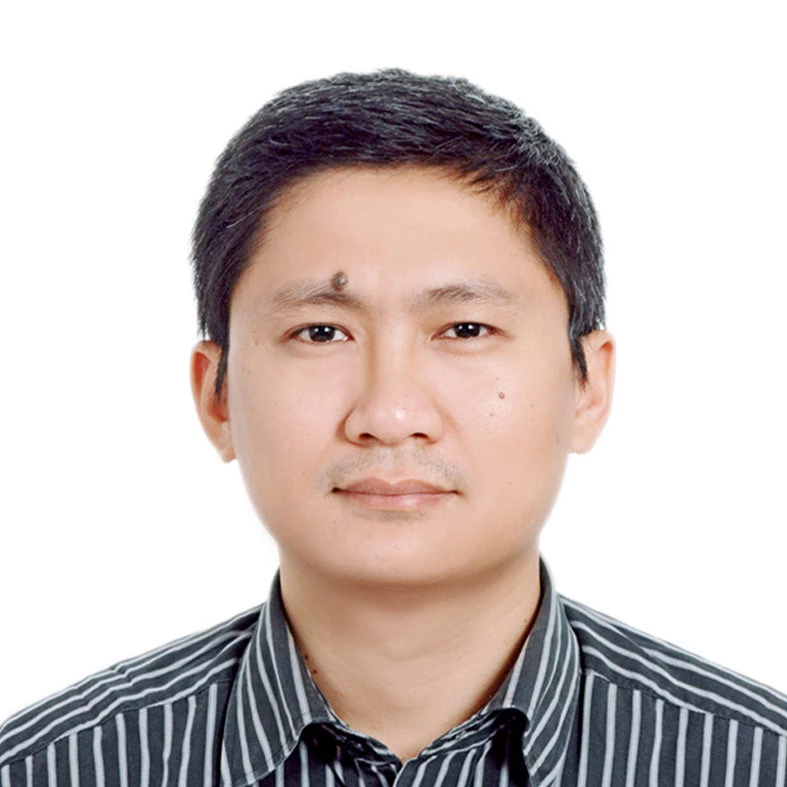Colleagues often make fun of me - a physician who does not manage patients, but healthcare waste. I must confess that I have a strange job. When I visit hospitals, I do not walk through the front gate, but go around, behind the buildings. There I do not provide medical advice, but rather I motivate people to clean up a contaminated place.
More and more people in the health sector are enthusiastic about these unusual roles. Dr. Nguyen Ngoc Dzung, Director of Kien Giang Traditional Medicine Hospital, inspired all staff with her commitment that ensures people “do not see and do not smell healthcare waste” at any location in the hospital.
Another example is Dr. Vo Cong Luan, Director of Long An Provincial Geneneral Hospital, who likes to invite guests to drink coffee and to relax in the hospital waste treatment zone. He and his colleagues made an effort to turn the most contaminated location in the hospital into an eco-park. The incentives for Dr. Dzung and Dr. Luan are not only a safer environment for health professionals, but also greater patient and community satisfaction and confidence in their hospitals.

These two hospitals are beneficiaries of the Hospital Waste Management Support Project implemented by the Ministry of Health and its Health Environment Agency (VIHEMA), financed by the World Bank. When we began this project it was estimated that health facilities in Vietnam generated about 40 tons of hazardous waste and 150,000 m3 of wastewater per day. Healthcare waste contains pathogens, sharp tools such as needles, toxic chemicals and other hazardous substances which can harm the environment and human health. To overcome financial and institutional constraints in health environmental management, the project is supporting the Ministry of Health and VIHEMA to strengthen the policy and institutional framework, while also actually improving healthcare waste management systems in about 150 hospitals.
This is also the first time the Vietnam health sector applies an innovative mechanism: results-based financing. This means that beneficiary hospitals have to prove that healthcare waste management systems meet Vietnam’s environmental standards through an independent evaluation process. Otherwise, they must return part or all of the capital to the Ministry of Health. This ensures implementing agencies’ accountability.
The hospitals have the choice to select the most appropriate technology within a menu of new technical solutions. Incinerators, which cause secondary pollution due to gas emission, are replaced with non-burn and environmentally friendly technologies, disinfecting and shreding infectious wastes so they become non-hazardous like domestic wastes. Healthcare wastewater is purified to such an extent that hospitals can reuse these for other purposes such as watering plants.
What Dr. Luan, Dr. Dzung and other hospital directors have liked most is that the project moves the focus from “treatment of waste” to “management of the entire system,” which includes a shift from worrying about final disposal of waste to reducing its source. As a result, all project hospitals are standardizing procedures and strictly monitoring compliance. Special attention is being given to organization and human development, including strengthening infection control networks, training health staff and waste workers, and communicating and involving patients and their relatives in hospital environmental protection.
Of course, it is not at all easy to implement new technical solutions and new financial mechanisms. It took more than 3 years for Dr. Luan, Dr. Dzung and colleagues to set up systems and motivate people. But their efforts have paid off: Colleagues no longer find our healthcare waste management “strange” when they visit hospitals that are green as a park and clean as a hotel in Long An and Kien Giang. Together, we surely have greener, cleaner and safer hospitals for patients, health professionals and communities.
How are hospitals managing healthcare waste in your country? Share your thoughts and experiences below in the comment section.


Join the Conversation